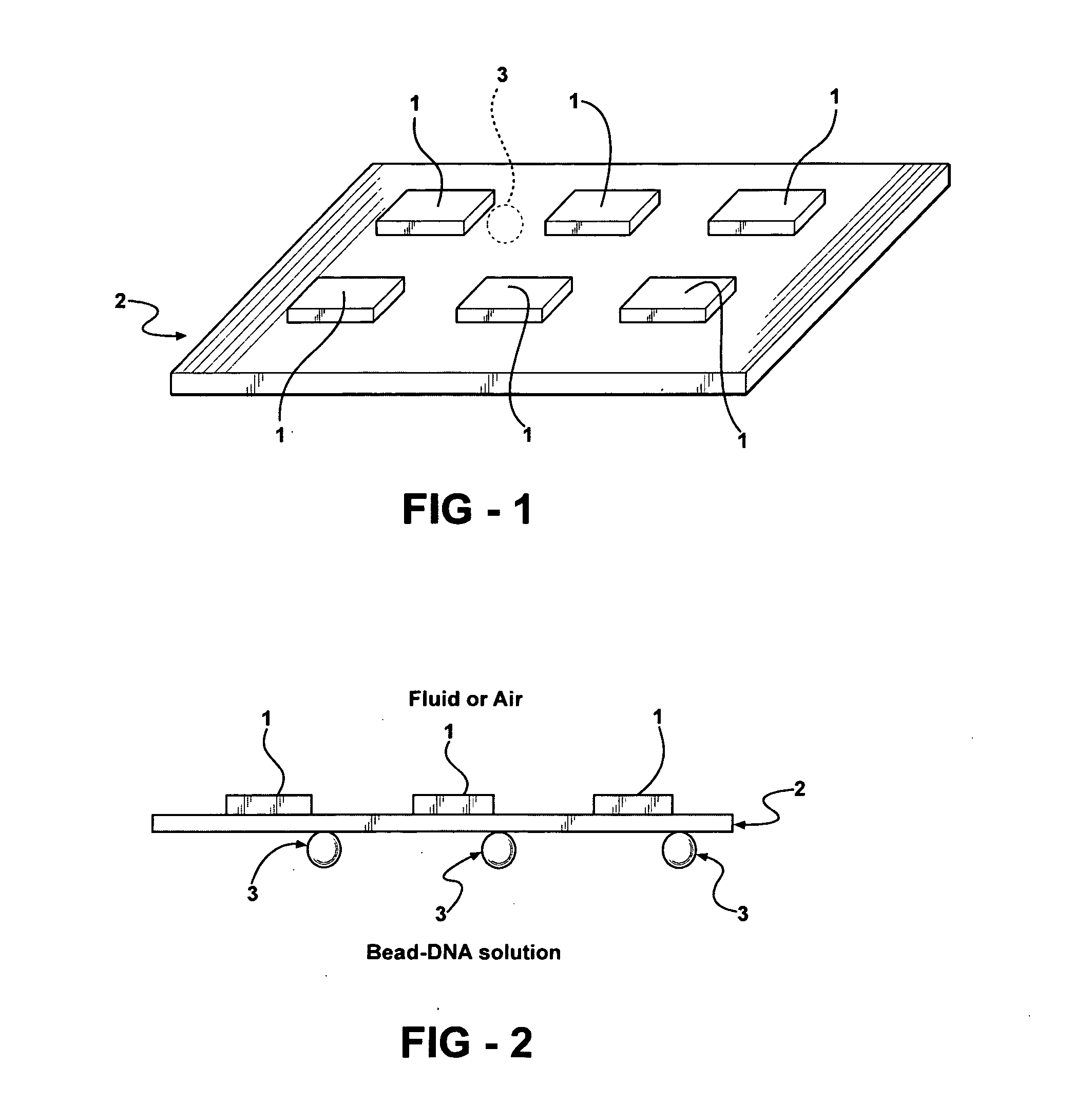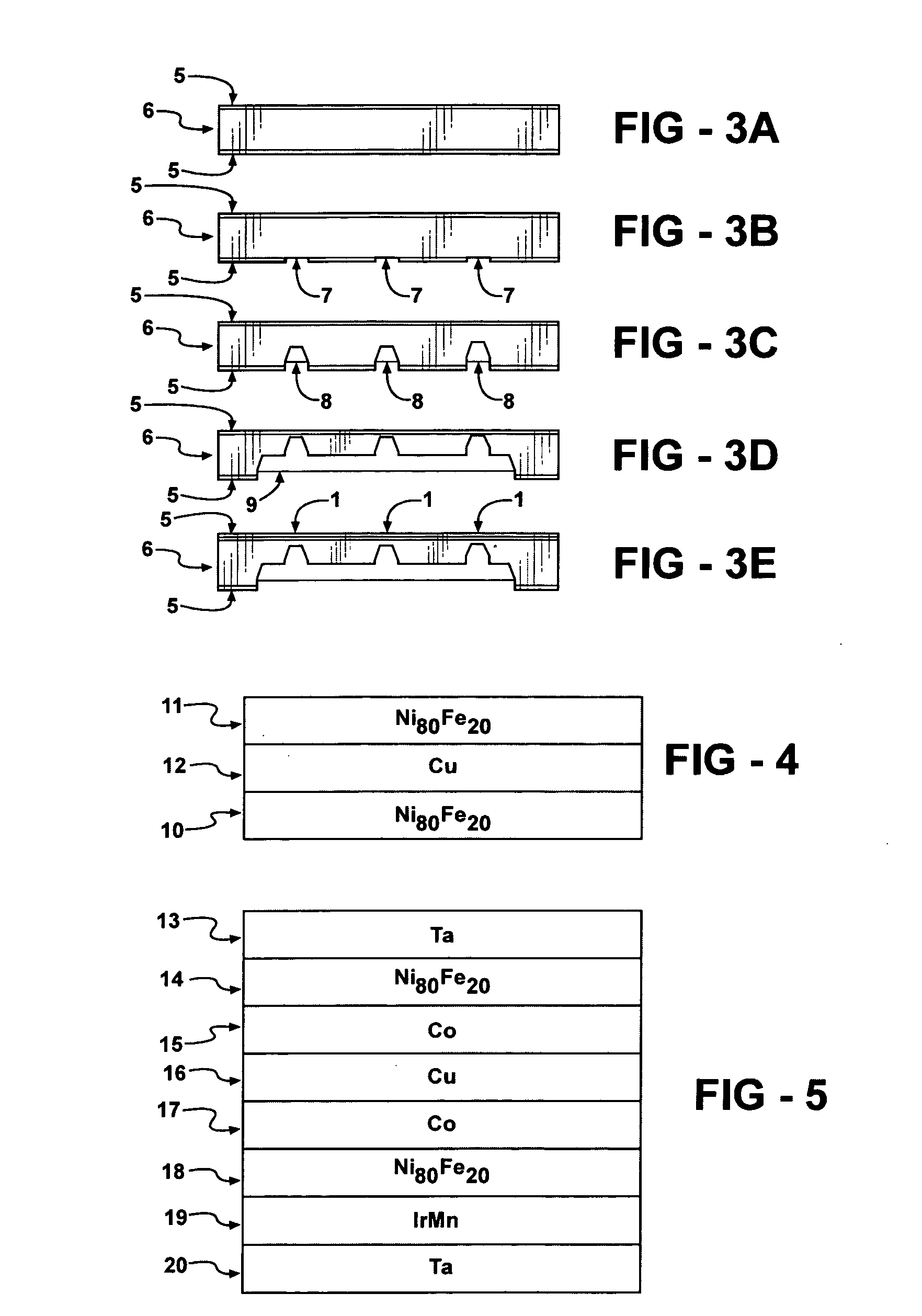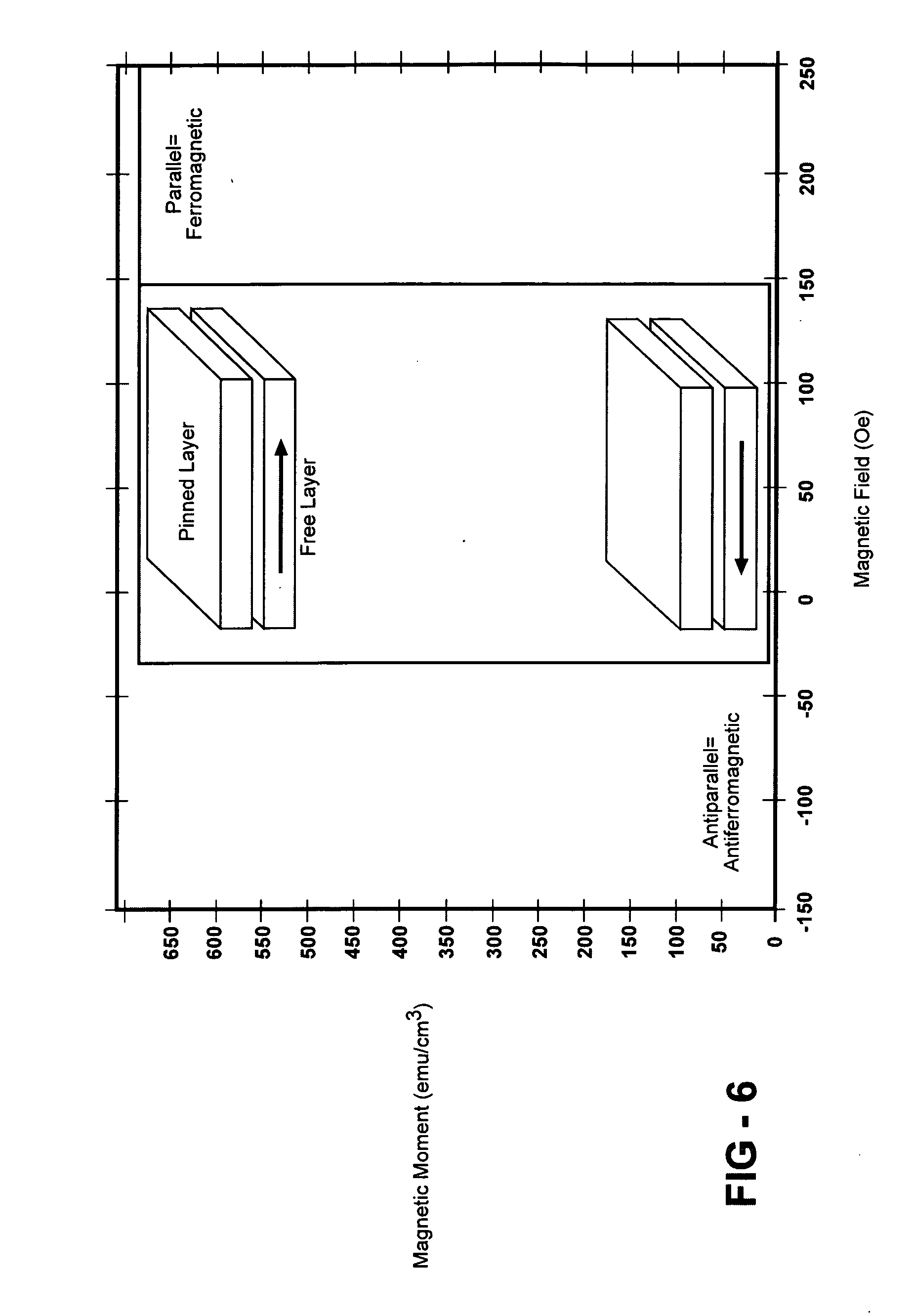Microfluidic platform of arrayed switchable spin-valve elements for high-throughput sorting and manipulation of magnetic particles and biomolecules
a microfluidic platform and switchable spin-valve technology, applied in the field of microfluidic platforms, can solve the problems of complex structure, inability to easily reconfigure for different operations or dynamica, and inability to easily manufacture systems, etc., and achieve the effect of not impairing the mobility of samples
- Summary
- Abstract
- Description
- Claims
- Application Information
AI Technical Summary
Benefits of technology
Problems solved by technology
Method used
Image
Examples
Embodiment Construction
[0048] The present invention provides a microfluidic platform that incorporates a platform consisting of a super array of spin-valve arrays each including arrays of individual spin-valve elements that can be used to selectively trap, manipulate and release magnetic or magnetically tagged or labeled particles with high throughput and specificity. Each array of spin-valve elements as well as each spin-valve element can exist in a ferromagnetic “ON” state in which the individual spin-valve elements act like micro bar magnets with local magnetic fields. The magnetic field gradients provide the trapping field to confine the magnetic particles. The spin-valve platforms and spin-valves can be turned to the antiferromagnetic “OFF” state where the spin-valves no longer produce a local magnetic field. In the absence of the local magnetic field, the magnetic particles are released from the spin-valve elements. The platform consists of a membrane that can separate the spin-valve arrays and spin...
PUM
| Property | Measurement | Unit |
|---|---|---|
| diameter | aaaaa | aaaaa |
| diameter | aaaaa | aaaaa |
| length | aaaaa | aaaaa |
Abstract
Description
Claims
Application Information
 Login to View More
Login to View More - R&D
- Intellectual Property
- Life Sciences
- Materials
- Tech Scout
- Unparalleled Data Quality
- Higher Quality Content
- 60% Fewer Hallucinations
Browse by: Latest US Patents, China's latest patents, Technical Efficacy Thesaurus, Application Domain, Technology Topic, Popular Technical Reports.
© 2025 PatSnap. All rights reserved.Legal|Privacy policy|Modern Slavery Act Transparency Statement|Sitemap|About US| Contact US: help@patsnap.com



